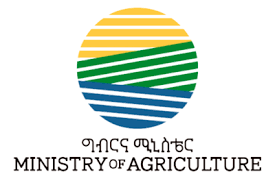
Head of Ministry Office
Sectors and Executives>Head of Ministry Office

Head of Ministry Office
Dr Girma Bekele
Duties and Responsibilities
The head of the ministerial office will be accountable to the Minister and will have the following duties and responsibilities:-
By overseeing the operations of the ministry office, monitoring decision implementation, and supporting the enhancement of responsible institutions' structures, it establishes effective institutional governance. It devises operational frameworks, evaluates performance, and aligns efforts towards achieving institutional goals.
Planning office strategies, overseeing their execution, and reporting on outcomes are integral to its role. Coordinating with management during strategic planning ensures alignment with performance objectives. It oversees annual plans, budgets, and resource allocation to facilitate implementation. Identifying mission-related challenges, it proactively seeks resolutions and monitors their effectiveness. Performance evaluations, budget oversight, and capacity-building initiatives are pivotal for internal organizational development. Facilitating timely reporting and document management ensures efficient communication across departments. Upholding regulatory compliance and optimizing resource utilization sustain institutional effectiveness.
It provides leadership fostering team cohesion and motivation, ensuring operational protocols meet national and international standards. Conducting audits and corrective actions maintain operational integrity. Addressing legal inquiries and overseeing law enforcement uphold institutional mandates. Strengthening anti-corruption measures and promoting ethical standards underscore its commitment to institutional probity. Through meticulous oversight and proactive engagement, it safeguards the institution's reputation and operational efficacy.
Executives Duties and Responsibilities
- Public Relations and Communication Executive
- Legal Services Executive
- Audit Executive
- Ethics and Anti-corruption Executive
The Public Relations and Communication Executive is accountable to the Minister’s Office and performs the following duties and responsibilities.
-By coordinating the institution’s public relations and communication efforts, it plays a crucial role in raising awareness among stakeholders about the institution’s policies, strategies, and plans. It acts as a spokesperson, organizing information and events to enhance communication activities through research and consultation. By preparing crisis plans and disseminating timely information, it mitigates risks and directs production activities across various media channels, pivotal in shaping a positive national image.
It develops and implements public relations and communication work plans, ensuring budgetary adherence and resource allocation to support operations. Identifying capacity gaps, it facilitates professional development and ensures projects adhere to deadlines, costs, and quality standards. Conducting regular performance evaluations and making adjustments, it oversees team activities effectively.
It builds the institution’s brand through strategic initiatives, fosters media relationships, and manages information dissemination to uphold transparency and trust. Implementing media and information access laws, it enhances public satisfaction and ensures timely responses to inquiries and complaints.
By leveraging media platforms and producing compelling content, it promotes institutional achievements locally and internationally, ensuring widespread visibility and impact.
Responsible for directing the operations of the department, ensuring compliance with institutional laws and regulations, and optimizing resource allocation, it oversees effective financial management and performance systems to safeguard institutional resources.
Supervising and organizing departmental activities, it makes decisions on critical matters and prepares annual physical and financial plans through comprehensive risk assessments. Collaborating with team leaders and audit experts, it finalizes and submits plans to the Ministry of Finance after approval.
Ensuring the department is well-equipped to achieve its objectives, it evaluates operations for timeliness, cost-effectiveness, and quality, implementing corrective measures as needed.
Developing audit plans aligned with closing procedures, it monitors performance, provides feedback, and promotes sustainable human resource development. Addressing issues and complaints from desk officers and departments, it fosters civil service reform and good governance within the department.
Implementing coordination procedures for senior management and stakeholders, it enhances operational effectiveness and conducts legality audits to enforce federal government decrees and regulations. Operational audits ensure economical and efficient performance strategies align with institutional goals, monitored for effectiveness.
By planning and directing departmental activities, emphasizing ethical standards and preventing corruption, conducting corruption risk assessments, implementing online wealth reporting and registration systems, and establishing conflict of interest prevention measures, it ensures institutional integrity.
The directorate coordinates planning initiatives, supervises and organizes operations, and provides ongoing monitoring and support. It ensures that allocated budgets, manpower, and resources meet operational needs and are utilized efficiently. Supervising expert assignments and adjusting procedures as necessary, it oversees effective implementation of departmental strategies. Representing the institution in discussions and meetings, it communicates updates and directives from the Ethics and Anti-Corruption Commission to senior officials for implementation.
Regular evaluation of planning and implementation reports with experts identifies areas for improvement and sets future directions. It submits performance reports to the commission and institution, receiving feedback for continuous enhancement. Coordinating training needs assessments and developing programs based on best practices, it monitors training implementation and evaluates ethical standards attained. It oversees the Ethics and Integrity Framework’s implementation for training evaluation, ethics access, and quality assurance, ensuring adherence to established standards.